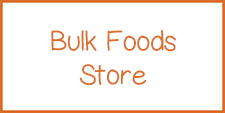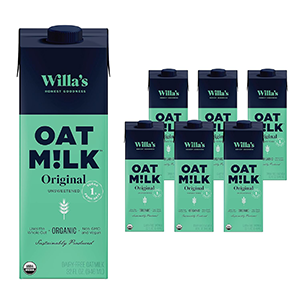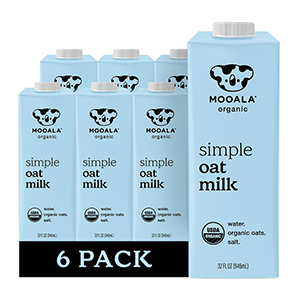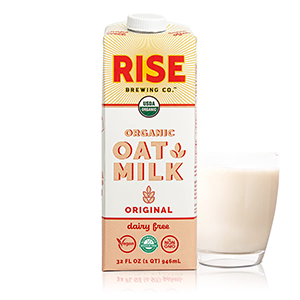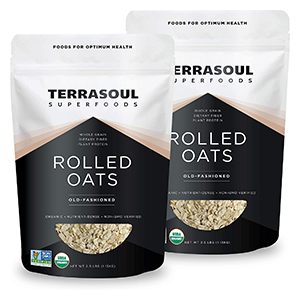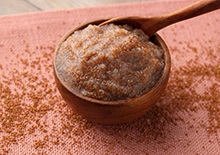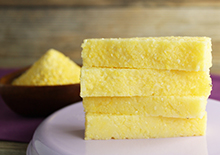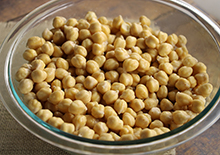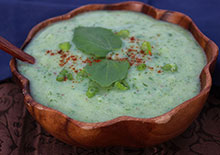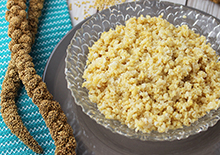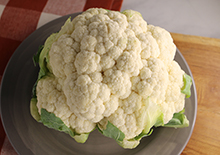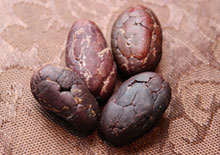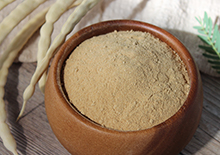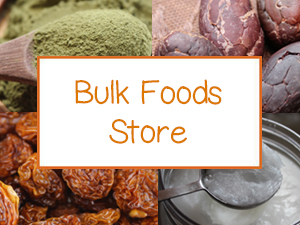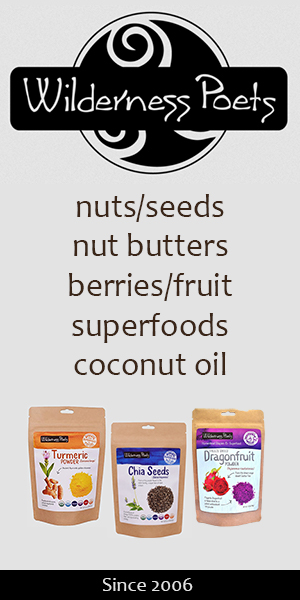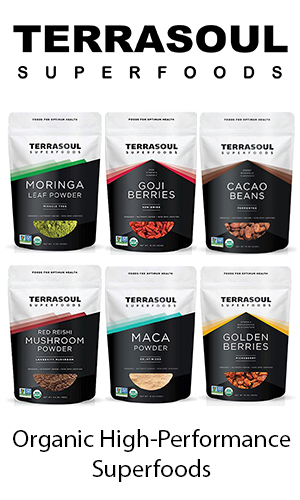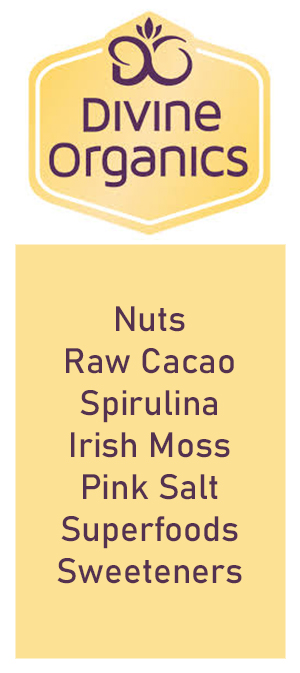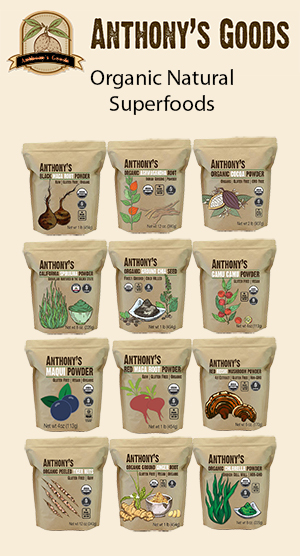- Home
- Plant-Based Cooking
- Pros and Cons of Oat Milk
Pros and Cons of Oat Milk, Commercial Vs Homemade
Intro | Pros of Commercial | Cons of Commercial | Pros of Homemade | Cons of Homemade | Oat Milk Vs Cow-Milk | How to Use | Precautions | Shop
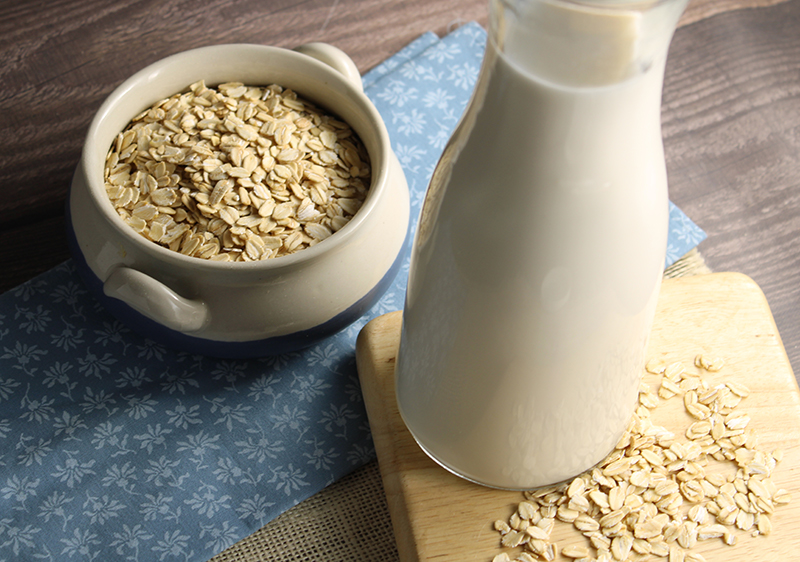
Manufactured oat milk is a plant-based drink known to have Swedish origins although health enthusiasts have been making it at home for many decades. The commercial variety is considered the innovation of food scientist Rickard Öste who in part produced one of the first oat milk brands in Sweden in the early 1990s.
In the U.S., oat milk became the go-to dairy-free milk alternative between 2017-2019 and since then has only grown in popularity. Step aside soy milk and almond milk, oat milk is predicted to be top on the list of vegan plant milk options in 2024.
Table of Contents
Intro | Pros of Commercial | Cons of Commercial | Pros of Homemade | Cons of Homemade | Oat Milk Vs Cow-Milk | How to Use | Precautions | Shop
Making oat milk essentially involves briefly blending dry raw rolled oats and water, then straining out the milky liquid. It has a subtle oaty flavor and most importantly a dairy-like creamy thick consistency.
What are the pros and cons of oat milk? Well, that depends on if you make it homemade or buy it at the store. Generally, there are some overlapping qualities. Here are the advantages and disadvantages of each variety.
4 Pros of Commercial Oat Milk
PRO #1 Convenience - Shelf-stable boxed oat milk is often a more convenient choice over making it homemade. It is now available at most supermarkets or from online suppliers.
PRO #2 Quality Options - The best packaged types, in our opinion, are organic varieties that include a relatively simple list of ingredients. Basically: water, oats and sea salt.
PRO #3 Fiber and Protein - According to product labels, oat milk can contain small amounts of fiber and protein. It is also vitamin-enriched.
PRO #4 Barista Creamer -
Sometimes you will see oat milk labeled as "barista". This is a style utilized as a creamer for coffee or used in traditional coffeehouses when
making milk-based cappuccinos or lattes. It is the type of non-dairy
milk that Starbucks currently uses.
Barista oat milk is processed differently to provide foam and froth when steamed.
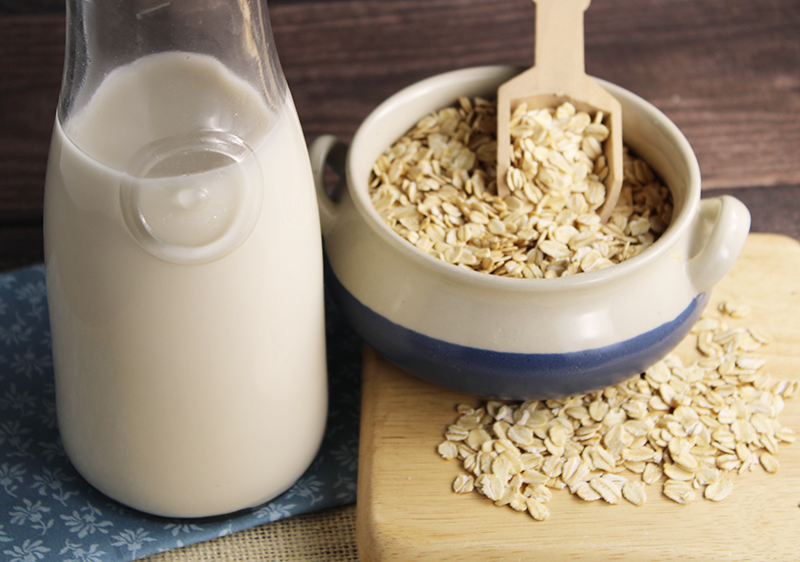
7 Cons of Commercial Oat Milk
CON #1 Refined Oils - Many brands almost always add in refined vegetable oils, usually canola or sunflower oil. These are not oils we would consume on a regular basis. Barista oat milk is especially high in oil content, usually canola
(rapeseed). Visit our page on why this oil is best avoided.
CON #2 Pasteurized - All commercial oat milk is flash pasteurized via a process that uses an ultra-high temperature. This technique kills off pathogens but can lower the nutritional value quite a bit..
CON #3 Synthetically Fortified - Many brands fortify their oat milk with synthetic isolates like calcium, potassium, B vitamins and vitamin D. Usually calcium is in the form of calcium carbonate which isn't our favorite choice as far as lab-produced supplements. It is our view that getting your vitamins and minerals from whole food sources is more absorbable to the body and healthier long-term.
CON #4 Not Guaranteed Gluten-Free or Nut-Free - Oats don't contain gluten but they can be contaminated in facilities that process other foods like wheat or nuts. Most of the brands we came across do not use Certified Gluten-Free or Nut-Free oats. Certified varieties are officially tested and/or come from certified gluten-free processing plants.
CON #5 Glyphosate - The best type we recommend is as always one
that's Certified Organic and non-GMO. Conventionally grown oats, and the
products created from them, have been found to contain the toxic
chemical known as glyphosate, a widely used pesticide. Unfortunately, most brands as of 2023 are non-organic.
CON #6 Less Nutritious - Shelf-stable products like boxed oat milk have fewer nutritional benefits compared to making fresh oat milk from scratch. Likewise, commercial types can contain
additives such as tricalcium phosphate, dipotassium phosphate or gellan gum.
CON #7 Carton Box Packaging - Most oat milk brands use a type of box-like packaging that's currently made from five layers: polymer, paperboard, polymer, aluminum and polymer.
The important question is: which material comes into contact with the milk product? This would be the polymer or polyethylene, a form of plastic.
However, according to some science, one of the main varieties used called Tetra Pak appears to be the least toxic when it comes to plastics and doesn't contain BPA.
There is also the matter of some aluminum foil used around the cap that does come into direct contact with the milk itself.
7 Pros of Homemade Oat Milk
PRO #1 Easy to Make - Making oat milk is fast and easy. It simply involves blending one cup of rolled oats, 3-4 cups of water, and a pinch of pink salt. You then strain it through a fine mesh nut milk bag and you're done.
PRO #2 Quality Ingredients - One of the best things about making your own is that you get to choose the highest quality ingredients, using organic, non-GMO and gluten-free rolled oats.
PRO #3 More Nutrients -
When you make homemade oat milk you can use organic oats as
well as an increased oats-to-water ratio so you get more of the
oat-based nutrients. They are naturally good sources of the minerals manganese, phosphorus, selenium, zinc, magnesium and iron as well as B vitamins like thiamine, B5, B6, folate and niacin.
PRO #4 Beta-Glucans and Avenanthramides - Oats are high in beta-glucans (*), a soluble fiber. This is what gives oat milk its fiber content. It doesn't contain as much as oatmeal, however, which converts more beta-glucans because it's heated. Oats are also sources of avenanthramides known for their antioxidant activity. (*)
PRO #5 No Packaging or Additives - Homemade oat milk doesn't involve wasteful packaging, nor does it contain additives.
PRO #6 Less Expensive - Making your own oat milk can be about 4-5 times cheaper than expensive store-bought varieties.
PRO #7 Lower in Calories - Homemade can be lower in calories because it doesn't contain added oil content.

2 Cons of Homemade Oat Milk
CON #1 May Separate - Homemade can tend to separate, while commercial milk remains well integrated due to processing methods and the use of stabilizers. However, homemade oat milk will reconstitute when you shake the jar a bit.
CON #2 Not as Nutritious as Oatmeal - We would say that either boxed or DIY oat milk isn't as nutritious as using oats to make oatmeal. That's because #1: oatmeal is heated which releases more nutrients like beta-glucans and #2: some of the nutritional value is strained out in the pulp.
Oat Milk Nutrition Vs Cow's Milk
Oat milk doesn't contain saturated fat and is higher in FIBER potentially beneficial for lowering cholesterol.
Cow's milk, however, is higher in PROTEIN content with one cup averaging 8 grams of protein. The same quantity of oat milk is about 2 grams of protein.
Unfortified cow's milk naturally contains minerals like calcium, magnesium and B-12. Similar to boxed oat milk, regular milk is also usually fortified with vitamins.
Plain oat milk without oils added is much lower in calories and more comparable to 1% dairy milk.
CALORIES - Cow's Milk Vs Oat Milk
148 Calories - Whole Cow's Milk
124 Calories Cow's Milk 2% Fat
103 Calories Cow's Milk 1% Fat
90 Calories - Plain Oat Milk
130 Calories - Oat Milk (with oils added)
130 Calories - Barista Oat Milk
Oat milk makes a great plant-based alternative for those who are lactose intolerant as well as vegetarians and vegans when dairy products are not on the menu.
You might also want to consider almond milk and hemp milk, made from hemp seed.
How to Use
Oat milk can be used like regular milk in smoothies, on breakfast cereal and incorporated into any number of recipes as a dairy substitute.
Precautions:
Consult your healthcare provider or nutritionist before adding oat milk to the diet on a regular basis, especially if pregnant, nursing, if you are taking medications or have a serious health issue.
Shop Related Products (About Affiliates & Amazon Associate Paid Links)
Affiliate Disclaimer: This section contains affiliate product links. If you make a purchase through our recommended links, we receive a small commission at no additional cost to you. Thanks for the support.
